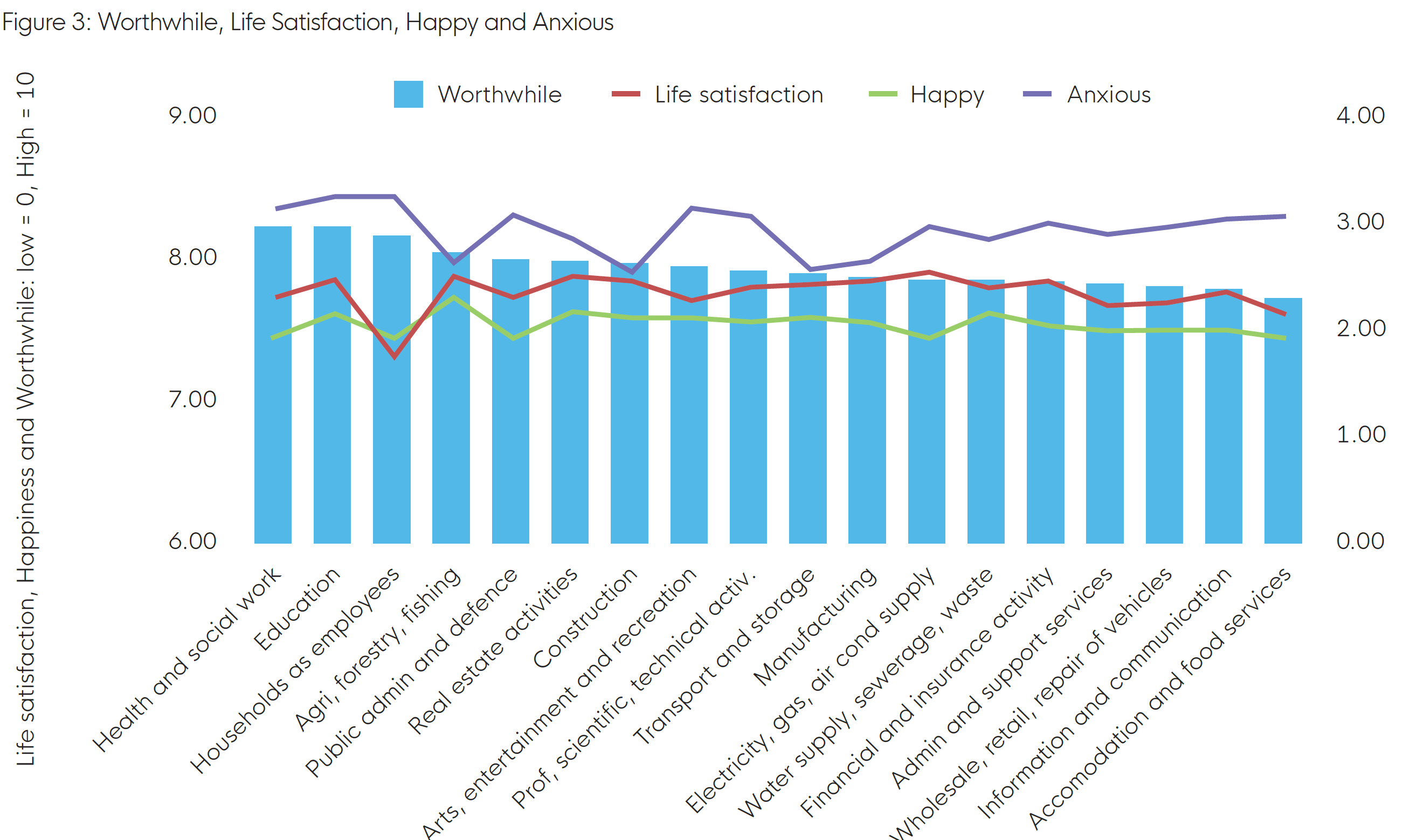>>Go to the ‘What matters for our sense of purpose?’ briefing
To what extent do you feel that the things you do in life are worthwhile? This is one of the four main subjective wellbeing questions asked by the Office of National Statistics in the annual population survey. It complements the other three questions, which ask about overall life satisfaction, as well as how happy and how anxious people felt the day before.
This question recognises that a sense of purpose and meaning matters to how people feel and function. It is an important aspect of our personal wellbeing.
It is perhaps the question we know least about though. There is a lot of research looking at overall life satisfaction, a catch all common currency for personal wellbeing, while research on happiness and anxiety is more responsive to day to day changes in our lives and experiences we have.
What makes life worth living? New findings from @WhatWorksWB & @thriving_places on what matters for people’s sense of #purpose in life. Useful as part of understanding different impacts of a #wellbeing recovery from #Covid-19: https://bit.ly/3q7A31p Share on X
So we partnered with the Centre for Thriving Places to summarise what we know about what matters for our sense of purpose. We wanted to share what is known to be associated with how people answer this question.
Unsurprisingly, there are many things that are not only associated with people reporting a higher sense of purpose, but also with higher life satisfaction, happiness and lower anxiety. Being in good health matters for all our wellbeing outcomes for example. But this research has highlighted some drivers of wellbeing that seem to matter more for our sense of purpose than for the other questions. Specifically, being employed, belonging to a religion and having children at home.
Beyond just being employed, we find that job satisfaction, working from home (for women) and being in a managerial or professional role all matter more for worthwhile than for life satisfaction, though the relationship with life satisfaction is still positive.
Having a job that gives us a sense of purpose is clearly positive for our wellbeing. Purpose is something that comes out clearly in our research and measures on employee wellbeing.
Yet, the evidence from this briefing also tells us where focusing on the purpose of our work may present tradeoffs with other aspects of our wellbeing. The chart below for example finds that while people doing health, social care and education work have the highest sense of purpose on average they also have high levels of anxiety. This is likely to have been exacerbated in the past year, where although these jobs have been very publicly recognised as fundamentally key to all of society, working conditions have been very stressful under Covid-19 conditions and uncertainties.
Similarly people who list their own households as employers, feel that the things they do are worthwhile, yet have on average much lower levels of life satisfaction. The data also finds that this is the case for people working in the third sector.

Work that provides meaning and purpose can be really rewarding and positive for our wellbeing. This can motivate people to enter careers and professions that are in turn valuable for the wellbeing of society too. However this data identifies the need to make sure that these kinds of jobs also support other aspects of people’s wellbeing, that they are good jobs in all senses, supporting not only our sense of purpose, but also our mental and physical health at work, our financial and job security and safety, our working environment and the relationships we have at work too.
For people that are not able to work, as people remain furloughed and unemployment rates in the UK look set to grow, it’s also important that policy makers and practitioners recognise the need to support people’s sense of purpose. Studying and volunteering is positively associated with a sense of purpose as are leisure activities such as physical or cultural activities. Enabling people to spend their time in an active and positive way should be valued and supported, particularly for those people with the lowest levels of wellbeing.
Covid and wellbeing
Whatever your sector, we have videos, briefings, and guidance to understand the impact, and what works for a wellbeing-centred recovery.
